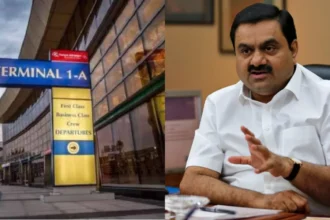The proposed deal between the Kenyan government and Adani Airport Holdings to manage Jomo Kenyatta International Airport (JKIA) has sparked significant controversy.
Many Kenyans worry that the agreement prioritizes profit over national interests, fearing unfavorable terms for the country.
Details of the JKIA-Adani Deal
Adani Group, an Indian multinational company, seeks a 30-year agreement with the Kenyan government. They plan to finance, build, and manage operations at JKIA.
The project is estimated to cost about $2.05 billion. Adani intends to invest $750 million in a new terminal and other infrastructure improvements.
However, the government is still conducting due diligence on Adani’s ability to handle such a significant project.
Public Reaction and Concerns
The proposed design for JKIA has drawn mixed reactions from Kenyans. Many citizens have taken to social media to express skepticism about the deal.
For example, some suggest building a new airport elsewhere instead of handing over control of JKIA to a foreign entity.
Critics also question the transparency of the process and worry about potential high fees that Adani could impose.Kenyans have voiced their concerns:
Legal Challenges and Government Response
The controversy surrounding the JKIA-Adani deal has led to legal action. The Kenya Human Rights Commission (KHRC) and the Law Society of Kenya (LSK) filed a case challenging the lease agreement.
They argue that it lacks transparency and poses risks to national interests.
Consequently, the High Court has temporarily suspended any actions related to the lease until the case is resolved, with a hearing scheduled for October 8.
In response, Adani Group has defended its proposal. They assert that they complied with all necessary procedures and that their plans would significantly upgrade JKIA’s infrastructure.
Furthermore, they emphasize their commitment to improving airport operations.
Political Implications
This situation reflects broader concerns about foreign investment in key national assets. Many politicians and citizens worry that such deals could lead to a loss of sovereignty over critical infrastructure.
As discussions continue and legal challenges unfold, the future of the JKIA-Adani deal remains uncertain.

















